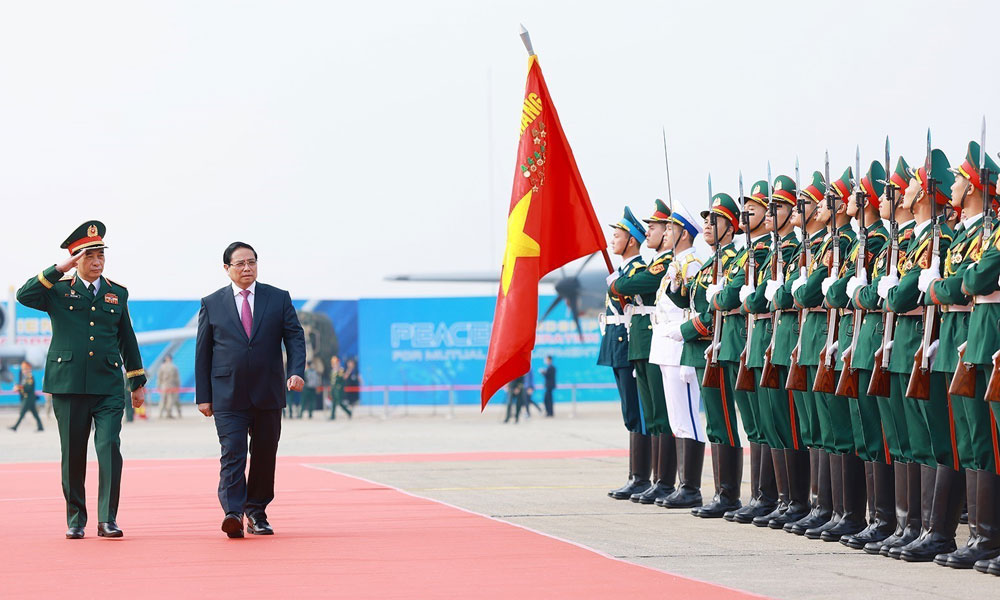Singer Dang Thi Nhung inspires love for Quan ho singing
Satisfying passion
From a young age, little girl Nhung learned to sing Quan ho with her siblings and friends, then fell in love with the folk songs. Later on, those love and passion have grown and become an indispensable part of her life.
 |
|
Quan ho singer Dang Thi Nhung. |
Despite old age, Nhung's voice is still loud, clear, sweet and echoing. She remembers hundreds of melodies and deeply understands the legends and ways of the ancients conveyed through each verse. For many years, she has collected and printed folk songs according to each topic and singing style to keep.
Viet Yen has five ancient Quan ho villages and more than 50 Quan ho clubs. Each village has its own characteristics, so she regularly participates in exchanges to sharpen her skills. Singer Dang Thi Nhung also opens a singing session at her home and invites male and female Quan ho singers from other villages to join singing exchanges.
Quan ho singing spaces in Chang village are also very diverse, sometimes on a boat, on a hill, in a communal house, in a pagoda, or under a banyan tree. Nhung has been appreciated and respected by her partners and generations of learners for her spirit of inquiry. Her singing voice is not only famous in Chang village but also inside and outside the province.
Nhung's family has four generations who know how to sing Quan ho. Her mother, Nguyen Thi Khai, now 100 years old, taught Nhung how to sing and play Quan ho as well as the manner and style of Quan ho singers since she was a child. Infatuated with those lyrical melodies, she taught her three children from childhood through lullabies. Then those lyrics were passed on to her grandchildren.
Preserving precious treasure
Since 1995, Nhung has been diligently teaching Quan ho for free to the younger generation. At first, she had many difficulties in gathering and maintaining the team because people were busy earning a living and did not pay much attention to traditional arts. However, Nhung persistently went to each house to encourage people to participate in.
 |
|
Dang Thi Nhung (first, left) and club members perform Quan ho folk songs at Chang village communal house. |
Nhung said: "To learn ancient melodies, it takes a month for learners to master them. That's why Quan ho folk songs are considered a scholarly and lyrical art form. Not only knowing how to take a breath and produce sounds, Quan ho singers must also know how to respond in a reasonable manner.
In recent years, the Quan ho folk song club of Chang village, headed by Nhung, has not only performed in village festivals but also participated in performances to serve political tasks and welcome domestic and foreign tourists.
The club currently has 42 core male and female singers of all ages, from young to old. She taught Quan ho to hundreds of people in the village and the commune. Many of her students have matured and achieved high results in Quan ho singing competitions. They also follow Nhung to teach the traditional folk songs to the next generation.
Not only being passionate about singing and teaching Quan ho, Nhung has also collected male and female singers’ costumes to display at her home. Nowadays, foreign tourists not only visit ancient Quan ho villages but also passionately learn about Quan ho in Chang village. They can go to Nhung's house to see beautiful traditional costumes and immerse themselves in folk songs.
With the desire to spread and preserve the precious “capital” of her homeland, Nhung has provided materials for the Vietnam Museum of Ethnology and the Bac Giang provincial Department of Culture, Sports and Tourism to serve the collection, preservation, and research of Quan ho cultural heritage.
 Bắc giang
Bắc giang

















Reader's comments (0)